Xiangyun Ding
Efficient Model-Based Collaborative Filtering with Fast Adaptive PCA
Sep 04, 2020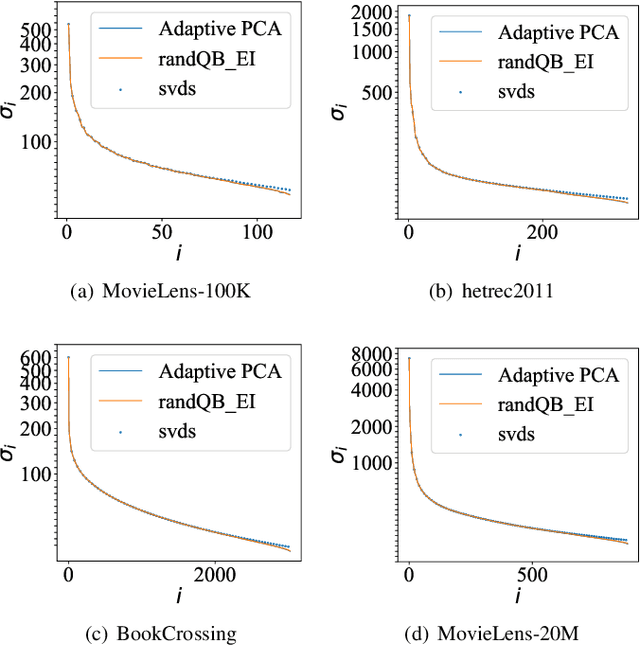
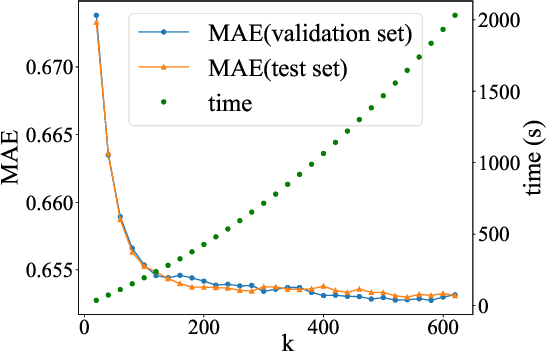
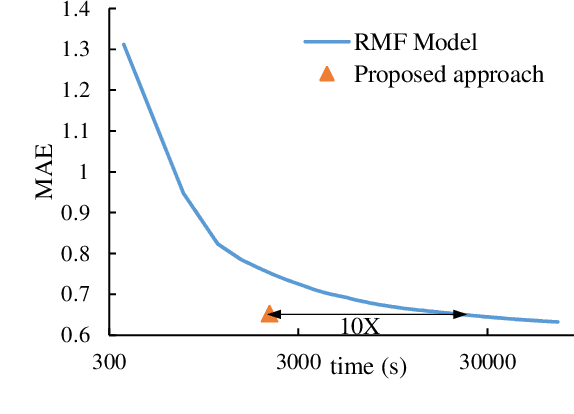

Abstract:A model-based collaborative filtering (CF) approach utilizing fast adaptive randomized singular value decomposition (SVD) is proposed for the matrix completion problem in recommender system. Firstly, a fast adaptive PCA frameworkis presented which combines the fixed-precision randomized matrix factorization algorithm [1] and accelerating skills for handling large sparse data. Then, a novel termination mechanism for the adaptive PCA is proposed to automatically determine a number of latent factors for achieving the near optimal prediction accuracy during the subsequent model-based CF. The resulted CF approach has good accuracy while inheriting high runtime efficiency. Experiments on real data show that, the proposed adaptive PCA is up to 2.7X and 6.7X faster than the original fixed-precision SVD approach [1] and svds in Matlab repsectively, while preserving accuracy. The proposed model-based CF approach is able to efficiently process the MovieLens data with 20M ratings and exhibits more than 10X speedup over the regularized matrix factorization based approach [2] and the fast singular value thresholding approach [3] with comparable or better accuracy. It also owns the advantage of parameter free. Compared with the deep-learning-based CF approach, the proposed approach is much more computationally efficient, with just marginal performance loss.
A Semi-Supervised Framework for Automatic Pixel-Wise Breast Cancer Grading of Histological Images
Jul 03, 2019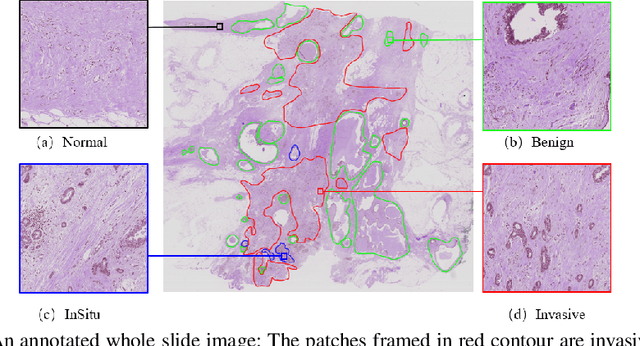
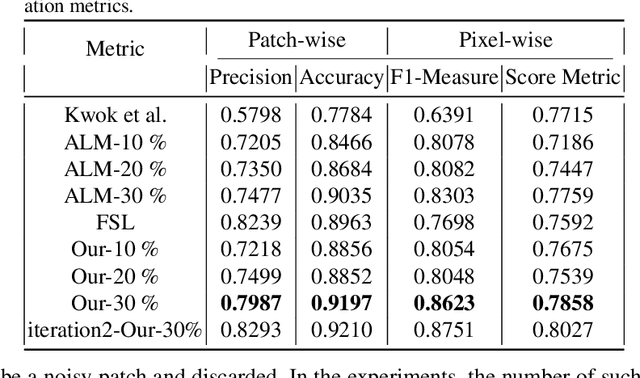
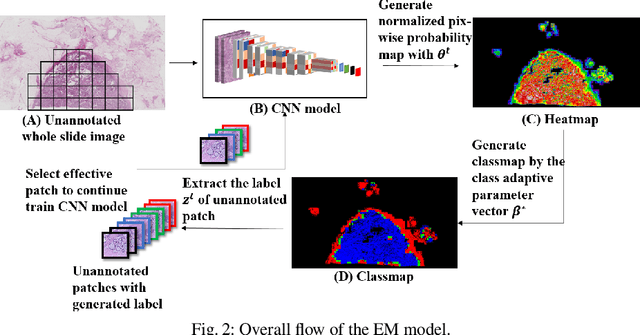

Abstract:Throughout the world, breast cancer is one of the leading causes of female death. Recently, deep learning methods are developed to automatically grade breast cancer of histological slides. However, the performance of existing deep learning models is limited due to the lack of large annotated biomedical datasets. One promising way to relieve the annotating burden is to leverage the unannotated datasets to enhance the trained model. In this paper, we first apply active learning method in breast cancer grading, and propose a semi-supervised framework based on expectation maximization (EM) model. The proposed EM approach is based on the collaborative filtering among the annotated and unannotated datasets. The collaborative filtering method effectively extracts useful and credible datasets from the unannotated images. Results of pixel-wise prediction of whole-slide images (WSI) demonstrate that the proposed method not only outperforms state-of-art methods, but also significantly reduces the annotation cost by over 70%.
 Add to Chrome
Add to Chrome Add to Firefox
Add to Firefox Add to Edge
Add to Edge